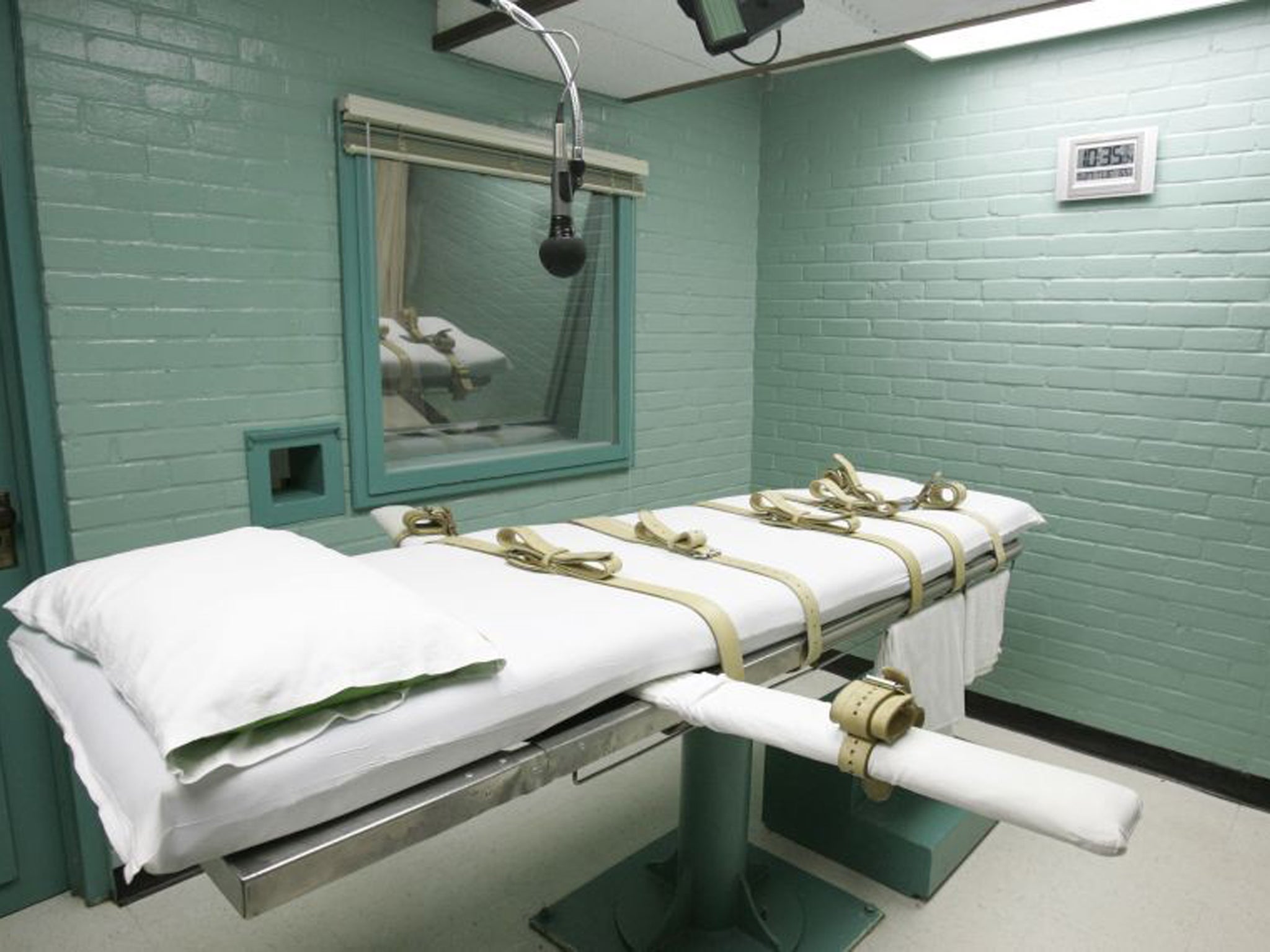US executions: What you need to know about the death penalty
A series of "bungled" executions have cast the issue back into the spotlight

Why are US execution methods back in the news?
Since Texas became the first state to implement the death penalty using lethal injection on 7 December, 1982, it has become the preferred method of execution in the United States - but the process has met problems across the country.
These include delays in finding suitable veins, needles becoming clogged or disengaged, and reactions from inmates who appeared to be under stress.
What’s happened recently?
A “bungled” execution in Arizona on Wednesday left double murderer Joseph Wood, 55, gasping for air after the combination sedative and pain-killer was administered; he survived for nearly two hours.
And in April, Oklahoma Death Row inmate Clayton Lockett, who was condemned to death for the brutal murder of 19-year-old Stephanie Nieman in 1999, died of an apparent heart attack after authorities halted a lethal injection that caused him to convulse and a vein to burst.
Have executions always been this brutal?
There have always been horrific stories about executions gone wrong. Inmates killed by the electric chair have been reported to suffer excruciating pain and "burning flesh", while use of the gas chamber has resulted in drawn-out deaths.
But, according to Judge Alex Kozinski, Chief Justice of the Ninth US Circuit Court of Appeals, the drugs cocktail used in lethal injections is no better.
He said: "Using drugs meant for individuals with medical needs to carry out executions is a misguided effort to mask the brutality of executions by making them look serene and peaceful .
"But executions are, in fact, nothing like that. They are brutal, savage events, and nothing the state tries to do can mask that reality. Nor should it. If we as a society want to carry out executions, we should be willing to face the fact that the state is committing a horrendous brutality on our behalf."
Is there something wrong with the drugs cocktail being used?
The drugs used in executions have become increasingly scarce since the EU issued a sweeping ban on their export to US death penalty states, many of which have resorted to using untested combinations of drugs obtained from barely regulated “compounding pharmacies”.
States including Georgia, Missouri and Florida have since refused to reveal the identities of their lethal injection drug suppliers.
Where does the law stand on the issue?
Wood's lawyers filed several appeals to have greater transparency over the supply of the drugs, including which pharmacies they come from, but these were denied by the US Supreme Court.
They argued that the public have a right to know details including who makes the drugs and the qualifications of whoever carries out the execution itself.
How do human rights campaigners feel about it?
Amnesty International says: “Lethal injection can cause excruciating pain.
“It increases the risk that medical personnel will be involved in killing for the state, in breach of long-standing principles of medical ethics.”
What about other execution methods?
Lethal injection has long been considered the most humane method of carrying out the death penalty.
However, following the nationwide shortage of drugs and resulting botches, Tennessee has signed a bill to bring back the electric chair, while Wyoming is considering allowing death row inmates to be executed by firing squad.
Subscribe to Independent Premium to bookmark this article
Want to bookmark your favourite articles and stories to read or reference later? Start your Independent Premium subscription today.

Join our commenting forum
Join thought-provoking conversations, follow other Independent readers and see their replies